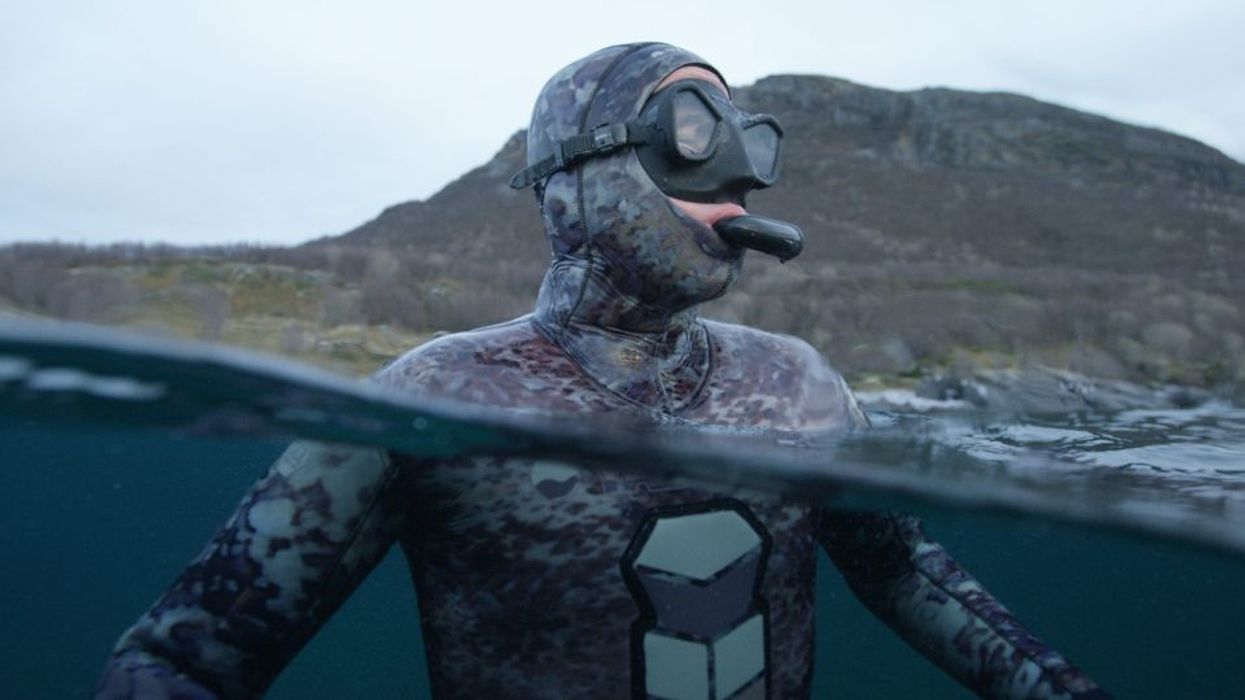Find Out What's More Important to James Cameron Than ‘Avatar 2’
Here are four good reasons why the legendary filmmaker is currently busy making non-fiction films at the bottom of the ocean.

Yes, the internet is eager for James Cameron (who goes by Jim, according to this panel) to finish the sequel to Avatar. But you know what? How important is a new 3D adventure with imaginary blue species compared to preventing the destruction of a very real and majestic blue species already in 3D? Not very, according to Jim.
In a 2021 SXSW panel titled Ocean Storytelling with James Cameron & Brian Skerry, both filmmakers sat down to explain how they made Secrets of the Whales over the course of three years. And you know, how filmmakers just might save the world.
Here are our takeaways.
High-stakes filmmaking is the most rewarding
Sure, Titanic was cool. What about jumping into freezing arctic waters not because you’re on a sinking ship, but by choice? That’s what Cameron appreciates about working with NatGeo filmmaker Brian Skerry on Secrets of Whales. Why?
“It’s the subject matter,” said Cameron. “I knew Brian through NatGeo, he brought up the idea. We just have to photograph at it—it’s going to take time and it’s going to be arduous. But what if we can illuminate these animals that we love and respect but don’t know much about? How can we understand what their minds are like?”
As Skerry explained it, the film was part story part discovery expedition—to find out the culture of whales.
“Across genetically identical species, whales are all doing things differently. They have different parenting techniques, food preferences, dialects like the neighborhoods of NY at turn of the century… we thought if we could do this right, we could see the ocean differently.”
For Cameron, the challenge was definitely worth taking to follow four whale families for three years to try to do this.
“It’s a three-year expedition, and Brian is at the frontline. In the past, I’ve spent a couple of months at sea, but those things (trenches, the Titanic) are always there. Here, the challenging subject appeals to me.”

When you get a good shot, it’s despite everything
As Cameron pointed out, the challenge of following four families of whales is that you can’t exactly make an appointment with them.
“They don’t necessarily know where the whales are going to be. You need the animals to show up and conditions to line up. When you get a shot, it’s in spite of the effort. Every shot is a gift from the ocean. It takes tremendous research to get anything done on the ocean.”
Cameron reiterated that he has spent 15-20 years building advanced cameras and lighting tool sets for underwater cinematography.
“But that's a hubristic approach,” he said. “It wouldn’t work for Brian. We need tools that are quieter and less intrusive. It’s a daunting and challenging place to film. But we should do the sequel in 3D.”
Filmmaking starts with building trust, even across species
The crazy thing about capturing whales for the project is that it is not scuba, but free diving.
“They can see you coming a mile away,” said Cameron. “They can actually see inside your body (with echolocation) and know more about you than you. So it’s about trust.”
“It’s like being scanned by a supercomputer,” added Skerry. “Orca in Norwegian Arctic waters are operating on levels we can’t understand. They can tell what we have for dinner, if we are sick know more about us. If you scuba dive, 30 feet down, you are on their level. Are you a competitor for their food? These are matrilineal societies, where older wiser women lead and decide what the culture is for that group. How and what they eat, for example, are preferences to each distinct culture of whales.”

We won’t protect what we don’t love
Cameron feels strongly about the conservation dividend.
“Orca whales are the apex thinker, not just apex predator,” said Cameron. “Just because it doesn’t have tools, houses, and smartphones doesn’t mean it’s not as smart as us. They are being poisoned by us and deafened by us, their feeding and reproductive channels are changing because of inevitable human technical civilization with the oceans. That’s not going to go away. They are on the brink of extinction, and we barely understand them. So let’s think about doing it better."
How do we save them? Through stories.
“What do stories get us? Stories change how we behave… We get people to see whales differently. People love to see whales, they go on a whale watching tour, eat hot dogs, and go home, and that’s it."

"If we can show people they have identity, we can get people to change. The change to the greatest stress on the ocean: don’t eat meat and dairy. We use oceans as toilets for agricultural runoff, and it creates dead zones that are affecting everything. Through storytelling, we can show people that to change their overall footprint makes a big difference. So let’s imagine how to tell stories better.”
The major point? Your story just might save the world.
Secrets of Whales comes out on Disney+ next month, so see if their storytelling inspires you to be a better storyteller. And don't worry, the next Avatar is coming next.
For more, read our ongoing coverage of the 2021 SXSW Festival.














